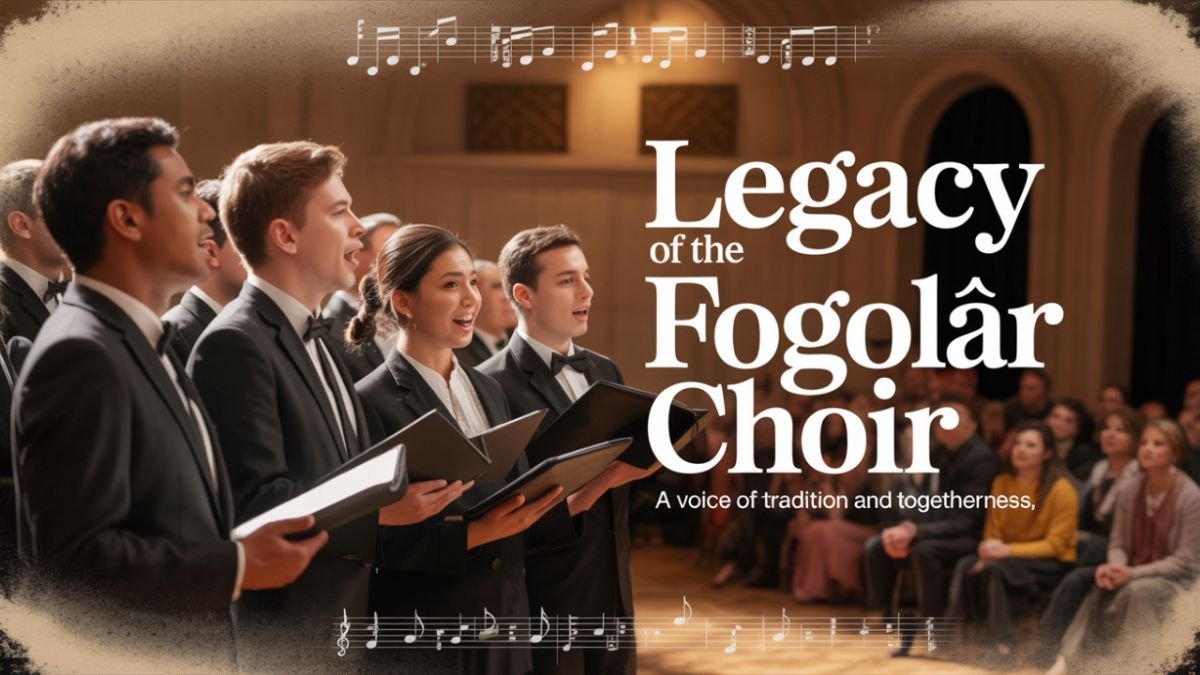Fogolâr Choir Furlan is in the not too distant past, a society; now it stands as a living example of the spirit, heritage and self-esteem of the Italian-Australian immigrant community. This institution has given not only a sense of belonging to thousands of immigrants from the Friuli region of Italy in their new land, but it has also colored the shades of Italian culture in various Australian cities like Melbourne, Sydney, and Brisbane. Let’s explore the community journey of Fogolar Furlan, its challenges and its future.
A journey and establishment of Fogolar Furlan: history
Exploring the journey of Fogolâr Furlan in Australia, this review highlights its legacy, the transformations over time, and the evolving future of this iconic Italian-Australian community institution.
From Italy to Australia: First Migration Waves
As early as the end of the 19th century and early 20th century, people from the Friuli region went off to Australia in search of jobs, security, and a better life. As they settled in one of their new homes far away from their own, helped by their fellows, they established the Fogolar Club.
Early Organizations and Their Role
- 1896: Dante Alighieri Society is established – for the Italian language and culture.
- 1917: Italian Cavour Club is founded and thus strongens the social and cultural activities.
- 1953: Ente Friuli nel Mondo is formed, which is the central coordinating body for Fogolar clubs around the world.
- The first Fogolar Furlan in Australia is formed at Brisbane in 1956.
- Clubs then followed suit in Melbourne, Adelaide, Griffith, Sydney, Perth, Canberra, Dimbulah and New South Wales.
All of these organizations were intended to foster community meetings, the preservation of traditional practices, family celebrations together, and social assistance.
Fogolar’s Role: The Centre of Society and Culture
Highlighting its role as a social and cultural hub, Fogolâr has also served as a space for empowering women within the community.
Platform for women’s empowerment
The importance accorded to women by Friuli in the 1950s reflected through the marketing and hosting of club events and daily ritual. Those contributions included:
- organising traditional Friulian meals, organizing art classes, Italian language classes, charity dinners and festivals.
- Many clubs, especially one in Melbourne, today still have a ‘Ladies Committee’ active.
- Organising picnics, barbecues, Sunday lunches, and community celebrations for children, the elderly and youth.
A legacy to be imparted from generation to generation
Fogollar conformed to the often changing requirements and feelings of immigrants at any given time. Everyone found their place, from the oldest generation to the youngest; from men to women.
The challenges of today: Changing needs with the times
Amid today’s challenges, evolving needs have brought a noticeable generational gap within the community.
Generational gap
- The average age of most members is between 60 and 65 years.
- The new generation is generally less interested in club activities.
- Very few younger members go regularly, and “club culture” becomes a thing of the past due to changing priorities.
Funding and activities
- The operations of the club are dependent on offerings collected from membership fees to income coming through community events and parties.
- Almost every Fogollar club has very similar activities which in turn lose color.
The challenges facing new immigrants in today’s society
- More educated and aware than ever, young immigrants realize that
- The new generation requires employment support, networking and real-time communication in modern ways, and that traditional fogolar clubs are not able to fully meet these needs.
- Due to the inertia on the part of the older generation, the new age is not able to attract youngsters toward the clubs.
Fogolar Transformation with Changing Times
As Fogolâr evolves with the times, various modernization efforts have been initiated to ensure its continued relevance and appeal.
Modernization efforts
- The clubs have not restricted their image to modern sports competitions, cultural events, educational exchange programs, and networking meetings.
- ‘Modern’ initiatives were embraced along with ‘Friuli nel Mondo,’ but they moved at a slow pace.
New Communication Directions
- Modern technologies like social media, mobile phones, and email have changed the significance of formerly established identities and communal support.
- New migrants are now perhaps more informed than ever, self-sufficient and connected. They, more than in former times, need constructive community cooperation; “guardianship” is no longer something they want.
Future directions: Reform, innovation, and a new approach
Attracting the second and third generation among its members to keep really relevant and influential with respect to such changes will now be the toughest challenge facing Fogolar, as well as creating supportive measures geared appropriately to new migrants.
Actions needed
- Incorporate youth leadership and perspectives in the policies and actions of the club.
- Including modern and fresh faces in the committee so that the best blends of tradition and innovation would be achieved.
Learning’s from Other Nations
Like South America, clubs are still the backbone of local communities due to the socio-economic conditions prevailing over there; but the US club in Australia finds itself in crisis due to the situation there. Here, Friuli migrants perceive clubs as important venues for support and security.
Conclusion
Fogolar Furlan has turned out to be a live heritage, an identity, and cultural pride for the Italian migrants in Australia. Yet time passes on and so need to change and communicate at a new level of community involvement. If these changes are not embraced with time, then these clubs might be needlessly threatened with setting extinction.
In the times to come, the key to Fogollar’s survival would be to transform its membership, development, and service practices, stay true to its roots, and attract youth and understand their needs.
